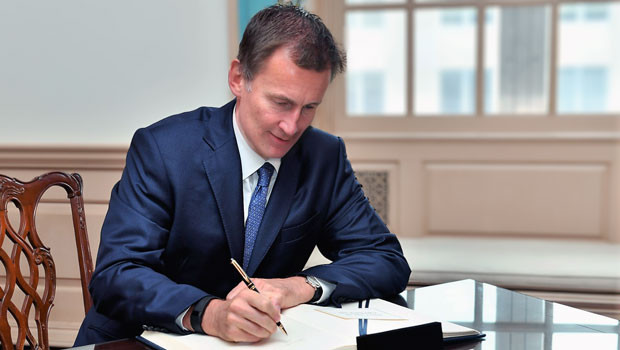UK spring Budget set for March 6, fuelling election speculation

Britain's spring budget statement will be delivered on March 6, the Treasury announced on Wednesday, amid suggestions the government may axe inheritance tax in an attempt to narrow a large opinion poll deficit ahead of a General Election which must be called by January 2025.
In a statement released during the holiday period when the majority of traders are away from their desks and financial markets are extremely quiet, Finance Minister Jeremy Hunt said he had commissioned the Office for Budget Responsibility to prepare an economic and fiscal forecast to be presented to parliament.
Reports in UK media suggested ministers in the ruling Conservative Party were mulling tax cuts and help for first-time home buyers in the coming months in the hope of giving the ailing government a pre-election boost amid the cost-of-living crisis and the highest income tax burden since World War 2.
Prime Minister Rishi Sunak's government currently trails the main opposition Labour Party - led by Keir Starmer - by as much as 19 points. His personal approval ratings are even worse, with 61% of respondents disapproving of his performance as leader.
Hard right, free-market idealogues on the Conservative backbenches want massive tax cuts from Hunt to woo voters. However, any moves on inheritance tax would appeal to a tiny proportion of the electorate - those who are asset or cash rich.
Analysis by the respected Institute for Fiscal Studies showed that the wealthiest 1% would receive almost half the benefit of any removal of the tax.
Meanwhile, successive freezes of income tax thresholds since 2021 by Sunak as finance minister, and followed by Hunt 2021 have raked in billions for the Treasury's coffers as workers find themselves pulled into higher bands - an effect known as "fiscal drag".
Official figures from the tUK tax office show 4.2 million more workers were now pay income tax of 20% compared to just three years ago. Meanwhile, 1.6 million more find themselves in the 40% tax bracket in the same period.
The threshold freeze will continue for the next four years, resulting in a fifth of workers paying the 40% rate by 2027, the IFS has calculated, while the OBR said fiscal drag will raise more than £25bn a year in 2027/28.
Reporting by Frank Prenesti for Sharecast.com